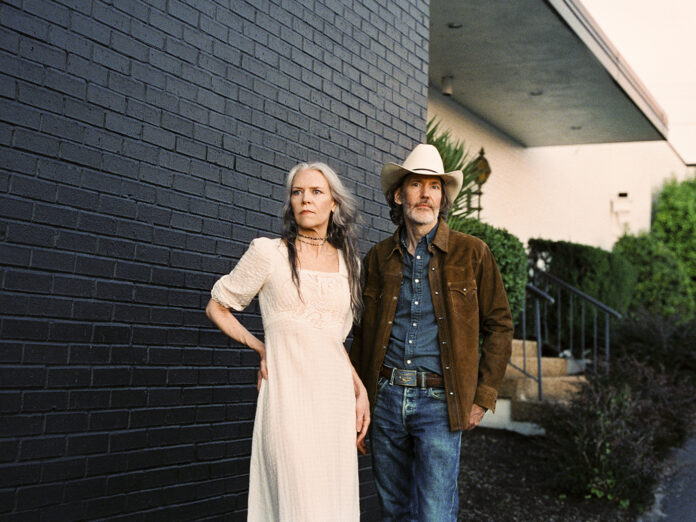Thirty years into their shared career, Gillian Welch and David Rawlings have devised a new way to add a little fire to their distinctive strain of country music. They have in the past released records billed to one or the other, even though they collaborate intimately on everything. Woodland, however, is their first collection of original material billed to both of them. It is, they both attest, simply a reflection of how they’ve always worked, but on this album there’s more freedom and variety in the arrangements. The couple trade off lead vocals from one song to the next, sometimes from one verse to the next, their combined voices not only enriching these songs sonically but thematically as well. “What We Had” sounds more downhearted because they’re singing with rather to each other — commiserating a collective loss, the damage done to their Woodland studio by a tornado in 2020. “What we had is broken, though we thought we’d never lose it,” Rawlings sings, his voice crackling in his upper register.
Thirty years into their shared career, Gillian Welch and David Rawlings have devised a new way to add a little fire to their distinctive strain of country music. They have in the past released records billed to one or the other, even though they collaborate intimately on everything. Woodland, however, is their first collection of original material billed to both of them. It is, they both attest, simply a reflection of how they’ve always worked, but on this album there’s more freedom and variety in the arrangements. The couple trade off lead vocals from one song to the next, sometimes from one verse to the next, their combined voices not only enriching these songs sonically but thematically as well. “What We Had” sounds more downhearted because they’re singing with rather to each other — commiserating a collective loss, the damage done to their Woodland studio by a tornado in 2020. “What we had is broken, though we thought we’d never lose it,” Rawlings sings, his voice crackling in his upper register.
These are songs about things taken for granted, things lost before they can be truly appreciated. On “The Day The Mississippi Died” the mightiest river in America dries up and runs backwards, which strikes the narrator as apocalyptic. On “Here Stands A Woman”, she checks off a long list of things erased by time: youth, family, romance. Musically, however, the duo add more and more to these songs, eschewing the country austerity of All The Good Times and 2011’s The Harrow & The Harvest for a slightly fuller sounds more akin to 2003’s full-band effort Soul Journey. There are drums on several songs, including opener “Empty Trainload Of Sky” and the devastating “Hashtag”, as well as smears of pedal steel, low fanfares of French horns and eddies of strings.
As with every album they’ve created together, Woodland is ultimately about these two people, these two voices, and these two guitars. Never is it more moving that when there are simply playing together the way they might at home, blurring the line of who is sing lead on “Howdy Howdy” or who is picking which note on “The Bells & The Birds”. Adding new flourishes to their core sound, Woodland is a beautiful and crucial addition to their catalogue, regardless of whose name is on the spine.
When you purchase through links on our site, we may earn an affiliate commission. Here’s how it works.



